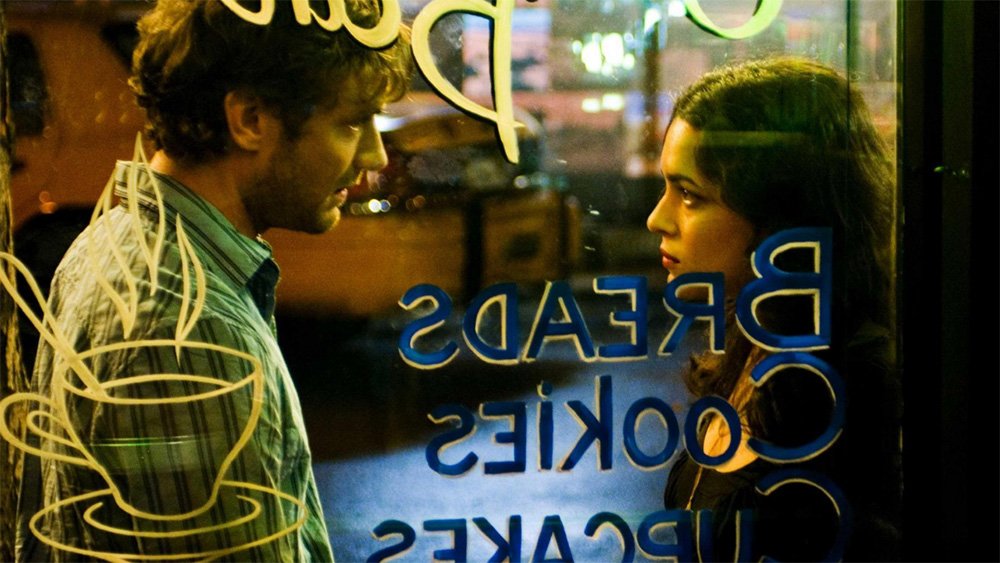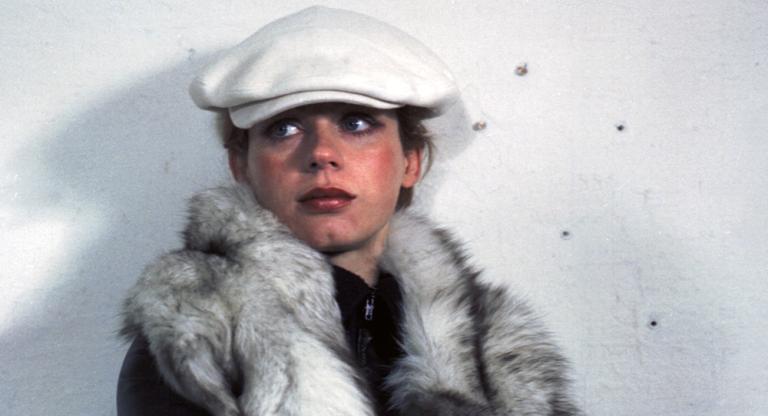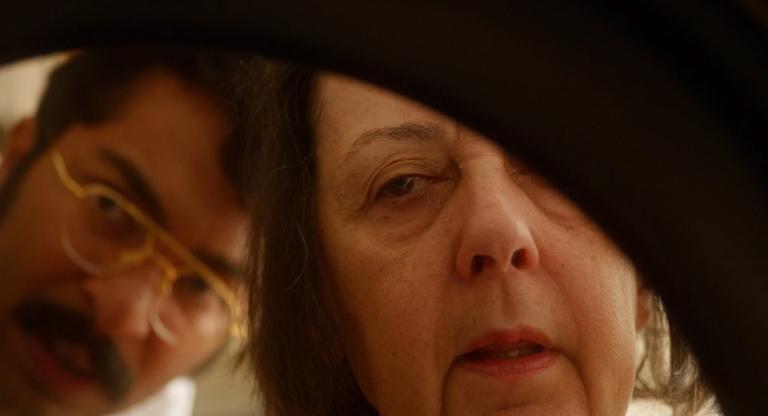Wong Kar-Wai’s name often graces the marquees of repertory cinemas in New York, but his first English-language feature, My Blueberry Nights (2007), is usually struck from retrospectives. While films like Chungking Express and Happy Together do revolve around travel, My Blueberry Nights and its obsession with the U.S. road trip narrative mark a literal departure. Wong adapted it from his Cantonese-language short film In the Mood for Love 2001 (2001)—itself originally planned for an anthology film titled Three Stories About Food—collaborating with crime writer Lawrence Block to translate the story to English. At the time of its release, many critics were disappointed. Today, it’s essential viewing for anyone who craves a Wongian take on American kitsch.
Its title sequence, a languorous musical intro underscoring oversaturated, surrealist close-ups, signals that My Blueberry Nights will amble. The narrative begins in New York City and bounces around protagonist Elizabeth (Norah Jones, in her acting debut), the dialogue like speech recalled from a dream. “I don’t remember people by their names,” bartender Jeremy (Jude Law, naturally) declares, “I remember by their orders.”
Wong’s film hinges upon these fantasy interactions: bartender as therapist-baker-chef, a bar specializing in pies. Train noises interrupt conversations; while they usually signify the potential for movement or escape, here the whistles and screeches only represent a set of possible destinations, endlessly and mundanely repeating. Elizabeth has got to get out of here.
She flees to Memphis. Each American city in this film is distilled into its impressionist essence; it’s free-association Memphis, not the Memphis of reality. For My Blueberry Nights, Memphis is “Try A Little Tenderness” by Otis Redding, dive bars, and world-weary waitresses named Sandy. The hysterical, performative bar fight between a scorned ex-husband, a biker gang, and an ex-wife named Sue Lynn is akin to A Streetcar Named Desire; Wong called this segment a tribute to Tennessee Williams.
The next vignette introduces Natalie Portman as Leslie, a Nevada card shark with a Southern drawl. Wong’s flourishes work particularly well in framing the Las Vegas strip, which has always been more of a myth than a place. This particular casino is the end of the line, the literal last resort. Their relationship is one of idyllic equal exchange: Leslie helps Elizabeth buy a car with her poker earnings, and Elizabeth helps Leslie mourn the death of her gambling addict father.
My Blueberry Nights is an exploration of iconic American images by a director who is not American, akin to Vladimir Nabokov’s syrupy, dreamlike recollections of the country in his novel Lolita. It’s more travelogue than tight narrative, the United States as seen through the smudged glasses of diners and bars. Everything is literal and earnest, a picture postcard with curling red type that declares, “Wish you were here.”
My Blueberry Nights screens tonight, August 4, at the Roxy in 35mm as part of the series “Hell or Las Vegas.”



